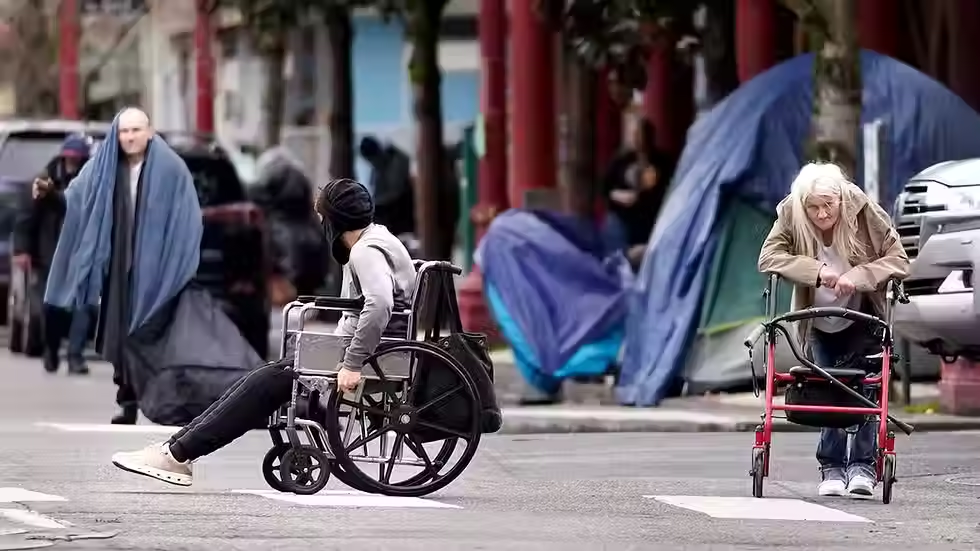The Courts STILL Won’t Save Us
- Lois Curtis Center

- Jun 30, 2025
- 3 min read
The Supreme Court closed out its 2024/2025 term with decisions that, when lined up alongside one another, paint a bleak picture for any semblance of meaningful checks and balances within the federal government. Those decisions also sound a warning for how impactful laws and policies made at state levels will be moving forward.
As federal policies have rolled out under this current Administration, advocates have celebrated small victories in different federal district courts around the country. In many of these cases, federal district courts have issued injunctions, or pauses, against federal policies that meant harmful initiatives or decisions would not immediately go into effect, thus their curtailing, albeit temporarily, their ability to inflict harm. These court orders were often written in a way that applied injunctions to people or organizations who may have been impacted but were not specifically named in the lawsuit. The orders in these cases have been issued as “universal” injunctions, which would make them applicable nationwide. In a report to Congress, from January 20 - April 29th of this year, 25 such universal orders were issued on cases challenging issues ranging from immigration to data privacy to federal employment to grant funding for educational institutions and nonprofit organizations.
However, the Supreme Court has now reined in the availability of these universal injunctions as a way to provide relief to large groups of people who may be harmed by administrative actions but are not specifically part of a federal lawsuit challenging such actions. In the universal injunction pertaining to the Trump v CASA case, which challenges the Administration’s orders ending birthright citizenship, the Supreme Court held that there is no legal basis for courts to enter injunctions that have nationwide implications, as their authority only extends to the parties immediately before courts.
It is likely that attorneys in these cases will be making trips to courts to take a look at the orders entered to defend those that offered widespread relief, anticipating a potential narrowing of the orders or the need to have cases certified as class action lawsuits to support broad restraining orders and sustained relief. Any new cases attempting to use broad injunctions to prevent imminent harm to parties will have to ensure all potentially impacted parties are included in the case, or anticipate any initial relief will be limited in scope.
Once again, issues related to the safety and rights of transgender people have, to our collective detriment, been given their 24-hour news cycle and then re-shelved. Earlier in the week, SCOTUS issued a ruling in the case, Skrimetti v US, upholding state laws in Kentucky and Tennessee criminalizing gender affirming medical care for minors notwithstanding parental consent and medical necessity.
The holding in Skrimetti defers to states in criminalizing medical care and is part of a one-two punch when combined with the court’s holding in Medina v Planned Parenthood, where the court allowed that states can prohibit specific providers from receiving funding through state Medicaid programs. These cases mark a troubling trend for post-Roe reproductive anti-choice state initiatives, the return to pre-Windsor marriage inequality (such as it is, given benefit limitations disabled couples must navigate in order to marry) particularly given Windsor’s reliance on state signals for the support- or lack thereof- of gay marriage and prior SCOTUS cases like Griswold v CT, which allows for states to criminalize consensual adult sexual relations, and longer term implications for state decisions should Medicaid become block granted or direct states to craft their own work requirements, service packages, or eligibility limitations.
As the Senate moves closer to passing a budget reconciliation bill that will have devastating impacts on Medicaid and Supplemental Nutrition Assistance Program (SNAP) beneficiaries, the holdings in these cases do not just have consequences for immigrants and transgender people, leaving aside the reality that disabled immigrants and transgender people are among those directly impacted. The holdings in these cases push the unchecked authority to preserve essential, life-sustaining services to states, giving states wide latitude to re-form programs to meet political, economic, and social agendas that will further pit marginalized groups against one another in the scramble to secure intentionally and artificially reduced resources.



Comments